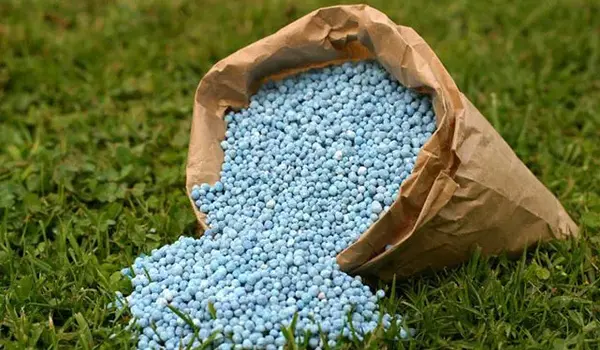Choosing the right type of fertilizer can make a huge difference in the growth, health, and yield of crops. Whether you're a farmer managing acres of land or a home gardener tending to your plants, understanding the different forms of NPK fertilizer—liquid, granular, and powder—can help you make informed decisions. Each form has its unique characteristics, benefits, and applications, depending on your soil type, crop needs, and farming techniques. In this blog, we’ll explore the differences between these three common forms of NPK fertilizer, providing insights into their use and effectiveness. Let’s dive into how each type works and when to use them! Liquid NPK fertilizers are a popular choice among farmers and gardeners because of their quick absorption and ease of application. This form is usually diluted with water and applied directly to the soil or sprayed onto plants, allowing for rapid nutrient uptake.Liquid NPK Fertilizer
Advantages of Liquid NPK Fertilizer:
Fast-acting: Plants can absorb liquid fertilizer quickly, making it ideal when crops need an immediate nutrient boost. This is particularly useful during critical growth stages or when plants show signs of deficiency.
Even distribution: It’s easier to ensure uniform distribution of nutrients when applied through irrigation systems or as a foliar spray.
Customizable application: Liquid fertilizers can be mixed to match specific crop needs, and it allows for a flexible nutrient management approach.
Best for: Drip irrigation systems, hydroponic farming, and when crops need immediate nourishment. It’s often favored for high-value crops where timing and nutrient precision are critical.
However, liquid fertilizers also require careful handling as they are more prone to runoff and leaching, especially if over-applied or during heavy rains. This form is less effective for long-term soil health and may need frequent applications.
Granular NPK Fertilizer
Granular fertilizers are solid, pellet-like forms of NPK nutrients that are widely used in large-scale farming operations. These fertilizers are either broadcasted across the field or applied directly to the base of plants.
Advantages of Granular NPK Fertilizer:
Slow-release options: Many granular fertilizers come in a slow-release form, which gradually releases nutrients over time, reducing the need for frequent reapplication.Cost-effective: Granular fertilizers are often more affordable than liquid fertilizers and are easier to store and transport.
Long-lasting: They break down over time, providing consistent nutrition to crops across multiple weeks or months.
Best for: Open field farming and large-scale crop production where long-term nutrient release is beneficial. It's especially useful for crops that don’t require immediate nutrient absorption but benefit from a steady supply.
On the downside, granular fertilizers may not dissolve as uniformly as liquid forms, potentially leading to uneven distribution. Also, rain or irrigation is often needed to activate the fertilizer, as the nutrients become available when the granules break down.
Powder NPK Fertilizer
Powder NPK fertilizers are finely ground and dissolve quickly when mixed with water. They share some characteristics with both liquid and granular fertilizers, offering versatility and adaptability to different farming practices.
Advantages of Powder NPK Fertilizer:
Highly concentrated: Powder fertilizers are often more concentrated than liquid forms, making them an excellent option for providing a powerful nutrient boost.Easy to store and transport: Like granular fertilizers, powders are compact and easy to store, but they offer the advantage of faster nutrient delivery once applied.
Customizable: They can be tailored to the specific needs of crops and can be applied directly or mixed with water for a foliar application.
Best for: Situations where rapid dissolution is needed or in settings where a highly concentrated nutrient solution is required, such as precision agriculture or smaller farming operations.
One challenge with powder fertilizers is ensuring even application, particularly in larger fields. Proper mixing and distribution techniques are essential to prevent clumping or uneven coverage.
Which Form is Best for You?
Choosing the right form of NPK fertilizer largely depends on your farming needs, budget, and the type of crops you’re growing. Here's a quick summary of when each form might work best:
Liquid fertilizer is perfect for farmers who need immediate results and want precise control over nutrient delivery.Granular fertilizer is more suited for long-term soil enrichment and large-scale farming operations where cost and ease of application are important factors.
Powder fertilizer strikes a balance between the two, offering both quick absorption and versatility but requiring careful handling to ensure even distribution.
Incorporating fertilizers effectively into your farming routine means understanding not only the needs of your crops but also the capabilities of your soil. It’s essential to test your soil, monitor crop growth, and adjust your fertilization strategy accordingly.
How Bulk agrochem Can Help
Bulkagrochem provides a wide range of fertilizers in all three forms—liquid, granular, and powder—offering farmers the flexibility to choose the best solution for their land and crop requirements. Whether you're looking for high-efficiency NPK formulations or specialized bio-fertilizers, Bulkagrochem has products tailored for diverse farming needs, helping you maximize your crop yield while maintaining sustainable farming practices.
Conclusion
The form of NPK fertilizer you choose can significantly impact your farming results. Liquid fertilizers provide rapid nutrient availability, granular fertilizers ensure long-lasting support, and powders offer a concentrated option that balances both needs. Understanding the unique characteristics of each form can help you select the right fertilizer to enhance crop growth, improve soil health, and boost yields. So, whether you’re looking to replenish soil nutrients quickly or want a steady nutrient release, there's an NPK fertilizer form that fits your needs perfectly.




